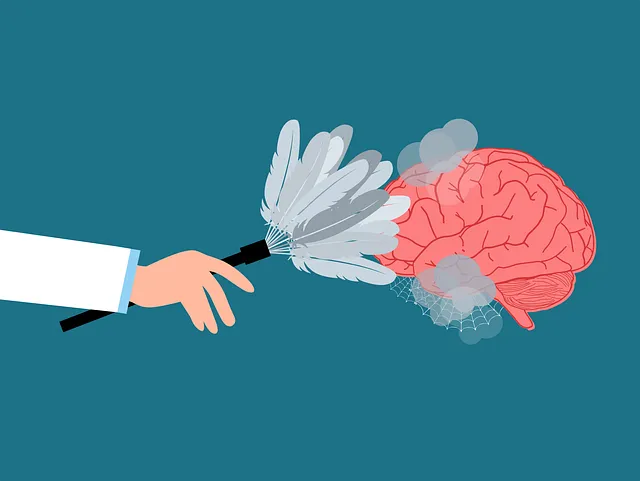Crisis Intervention Teams (CITs), integral to mental health care, offer specialized support during crises involving severe emotional distress or suicidal ideation. Organizations like Kaiser Permanente utilize the Kaiser Permanente psychiatry phone number in Littleton for immediate access to trained professionals. Effective CIT training, emphasizing cultural competency, de-escalation techniques and stress management, is crucial for improving patient outcomes and healthcare resilience. Simulation exercises, mindfulness meditation, and cultural sensitivity are key components of successful programs, as demonstrated by Kaiser Permanente's initiative in Littleton.
Crisis Intervention Team (CIT) training programs are vital resources for enhancing mental health care. With the increasing demand for support, these teams play a crucial role in de-escalating high-risk situations. This article explores the significance of CITs and delves into effective training methods, including simulation and real-world applications. We examine successful initiatives like those seen in Littleton, leveraging expert insights from organizations like Kaiser Permanente Psychiatry to emphasize the importance of accessible support systems.
- Understanding Crisis Intervention Teams: A Necessary Resource in Mental Health Care
- Kaiser Permanente Psychiatry Phone Number: Accessing Expert Support
- Training Programs for Effective Crisis Response: Essential Components
- The Role of Simulation and Role-Playing in Team Preparedness
- Real-World Applications: Success Stories from Littleton and Beyond
Understanding Crisis Intervention Teams: A Necessary Resource in Mental Health Care

Crisis Intervention Teams (CITs) are an essential resource in mental health care, offering rapid and specialized support during crises. These teams typically consist of healthcare providers, including psychiatrists and psychologists, who work collaboratively to assess and de-escalate situations involving individuals experiencing severe emotional distress or suicidal ideation. At organizations like Kaiser Permanente, the psychiatry phone number Littleton serves as a vital link for those in need, connecting them with CIT members who can provide immediate assistance.
Training programs for crisis intervention teams are crucial for enhancing healthcare provider cultural competency and equipping them with effective stress management strategies. Workshops focusing on de-escalation techniques, mental wellness journaling exercises, and other evidence-based practices can empower professionals to navigate complex situations with empathy and skill. Such training ensures that CIT members are prepared to offer compassionate, tailored support, ultimately contributing to improved patient outcomes and a more resilient healthcare system.
Kaiser Permanente Psychiatry Phone Number: Accessing Expert Support

In moments of crisis, accessing immediate expert support is crucial for effective intervention. One such resource available in Littleton and beyond is the Kaiser Permanente Psychiatry Phone Number, which offers specialized care and guidance. This direct line connects individuals in need with trained mental health professionals who can provide rapid assessment and evidence-based strategies to manage acute situations. Whether it’s a case of severe depression, suicidal ideation, or a traumatic event, the team is equipped to handle a range of emotional distress scenarios.
Beyond crisis intervention, leveraging the Kaiser Permanente Psychiatry Phone Number promotes emotional well-being through various techniques, including prevention strategies for depression and other mental health disorders. By fostering open communication and providing accessible support, they contribute to the broader goal of Mental Health Policy Analysis and Advocacy, ensuring that effective interventions are available to all those in need.
Training Programs for Effective Crisis Response: Essential Components

Effective crisis intervention team training programs are pivotal for organizations aiming to handle critical situations promptly and efficiently. These programs equip staff with essential tools and knowledge to support individuals in distress, be it patients at a healthcare facility or employees facing personal crises. Key components of such training include comprehensive communication strategies, ensuring every team member understands the nuances of de-escalation techniques.
Beyond communication, programs should incorporate strategies for burnout prevention and stress reduction methods. This holistic approach fosters a resilient team capable of sustained crisis intervention. By prioritizing these elements, organizations like Kaiser Permanente psychiatry phone number Littleton can ensure their teams are prepared to navigate complex situations with empathy and professionalism.
The Role of Simulation and Role-Playing in Team Preparedness

Simulation and role-playing exercises are invaluable tools in crisis intervention team training programs. These immersive techniques allow participants to experience high-stress scenarios firsthand, fostering a deeper understanding of their roles and responsibilities during an actual crisis. By replicating real-world situations, teams can practice effective communication, coordination, and problem-solving strategies, enhancing their preparedness and responsiveness.
At Kaiser Permanente psychiatry phone number Littleton, for instance, training programs often incorporate interactive simulations to prepare teams for various mental health emergencies. This hands-on approach not only improves team dynamics but also boosts public awareness campaigns related to mental health and wellness. Engaging in these exercises encourages open dialogue about challenging topics, contributing to the development of robust strategies that can be implemented during critical incidents, ultimately promoting better mental wellness podcast series production.
Real-World Applications: Success Stories from Littleton and Beyond

In the realm of crisis intervention, real-world applications and success stories play a pivotal role in shaping effective training programs. One notable example is Kaiser Permanente psychiatry’s approach, specifically highlighting their initiatives in Littleton. By integrating innovative strategies into their healthcare provider cultural competency training, they’ve achieved remarkable results. These programs emphasize mindfulness meditation and cultural sensitivity in mental healthcare practice, ensuring that professionals are equipped to handle diverse crises with empathy and expertise.
The impact of such initiatives extends beyond the walls of Kaiser Permanente psychiatry. The success story from Littleton serves as a testament to how tailored interventions can transform lives. Folks from diverse backgrounds and experiences benefit from these programs, fostering a more inclusive and responsive mental healthcare landscape. This, in turn, drives further innovation and emphasizes the importance of continuous learning for healthcare providers.
Crisis intervention team (CIT) training programs are vital components of modern mental health care, as evidenced by successful initiatives like those in Littleton. These programs, which include essential components like simulation and role-playing, equip healthcare professionals with the skills to handle crises effectively. Accessing expert support through resources such as the Kaiser Permanente psychiatry phone number further enhances their preparedness. By integrating these training programs into healthcare systems, we can ensure better patient outcomes and foster a more resilient mental health care network, building on the success of real-world applications like Littleton.






